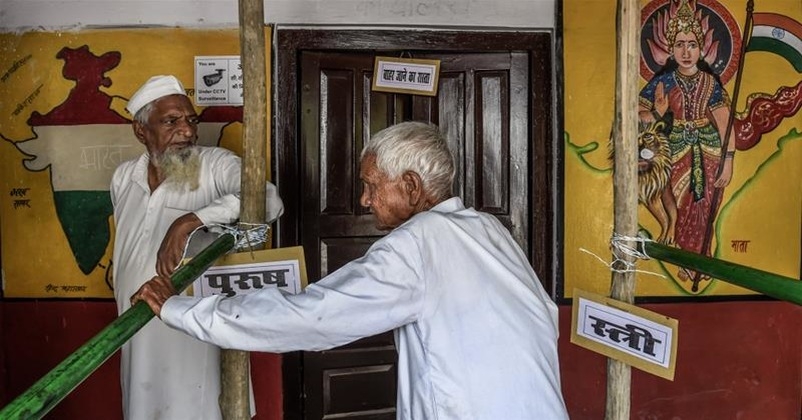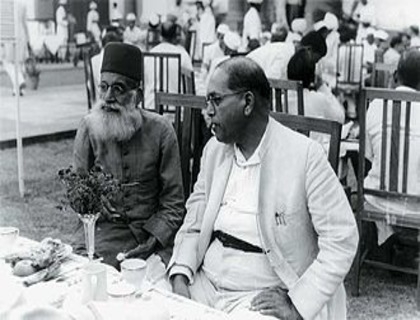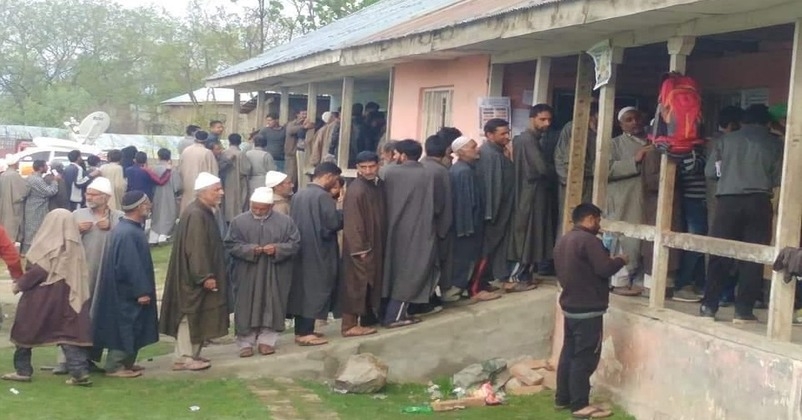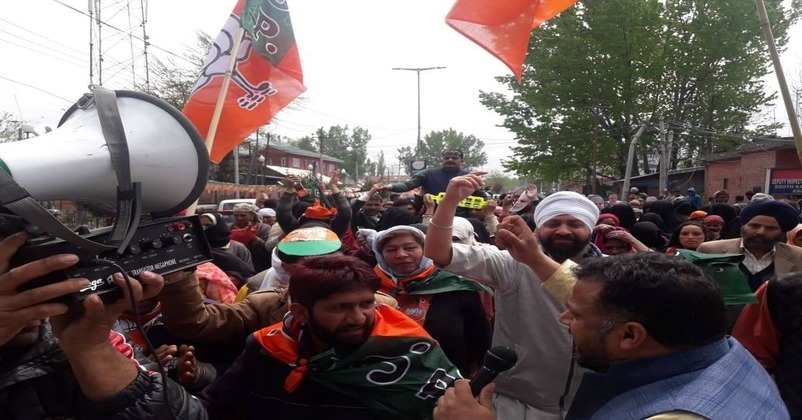Expert Opinion: Why 2019 Parliamentary election is crucial than ever?
| 25-Apr-2019 |

-K.N. Pandita
Certainly 2019 parliamentary election will be of considerable consequence to the future of the Indian nation. Almost for one millennium, our country remained under the sway of non-indigenous potentates and colonialists. Subjugation for such a long time naturally carries with it severe stress on the civilizational reservoir and we are aware of the consequences of such cataclysms.
One notable consequence of prolonged subjugation is that of suppressing the real history and introducing a narrative that suited the foreign rulers to perpetuate their authority. In technical terms, it is called a distortion of history. Quite strangely, our post-independence period retained the hangover of the traits of the foreign and colonial rule more by design than by sheer momentum of events. A big question that will be debated by generations of future historians is whether the country passed into the hands of proper leadership when the British withdrew in 1947. The question arises owing to a blatant dichotomy in the theory and practice observed by the national leadership meaning the Indian National Congress.
Looking in retrospect, we find that the Congress remained clouded by confusion and contradiction from the very beginning of the nationalist movement. Gandhi was able to win enormous popularity on the basis of leading a moment that demanded the ouster of the colonial rule. This mission had not only the political tag attached to it but more than that the emotional tag was of greater significance. He and his bandwagon fellows cashed on the emotionalism of the Indian nation. However, the Indian National Congress met with stiff opposition from the All India Muslim League which asserted that the Muslims of India were a separate community and would no more live in united India as a minority under the hegemony of the Hindu community. The British Indian rulers covertly supported their claim and made it an issue when the transfer of power was seriously debated. True, that there were many Muslims who did not support the concept of a separate state for the Muslims but history tells us that they did not directly confront the separatists led by Jinnah at any point of time. No concerted movement was made from the time when Pakistan concept was formally declared to the day when power was to be transferred viz. 15 August 1947. Not only that, even Maulana Azad lamented that nobody was listening to him as he went on enunciating the damage which the creation of Pakistan would mean for the entire Muslim community of India. The poor Maulana died a disillusioned man with visionary Nehru just consoling his disturbed mind. When Nehru in his speech in the Parliament vehemently supported the incorporation of Article 370 in the Indian Constitution, Maulana Hasrat Mohani, the reputed Urdu poet from UP and a member of the House, walked up to him and placing his bag full of papers before him told him “Pandit Ji this is your secularism. Keep it and I leave the parliament”.

Maulana Hasrat Mohani with Dr. B.R. Ambedker
The question is when Gandhi and his fellow travellers accepted the partition of India in an overnight move they succumbed to the two nation’s theory in practice. But imagine the contradiction and hypocrisy, the leadership incorporated secularism as the state policy in the Indian Constitution. The question is after the Muslims had carved a “puritanical” state for their community and left for the nascent state, for who was “secularism” meant in India? Normally declaration of India as a democratic republic was enough to provide necessary safeguards to minorities like Sikhs and Christians. Obviously, secularism was meant to apply to the Muslims who had not opted for migration to Pakistan. Thus the Muslims of India who never forcefully and imaginatively fought Muslim communalism, allowed a Muslim State to be carved out of United India, but stayed on and obtained security and sympathy of the Indian National Congress for the two nation’s theory.
In Kashmir, Sheikh Abdullah most ardently opposed the Two-Nation’s Theory and thus tried to endear himself to the unsuspecting Indian nation and the Congress leadership that he was against what the makers of Pakistan demanded. The Sheikh’s secularism and anti-two-nation’s tantrum were exposed in 1953 barely five years after independence. The Sheikh had to be put under detention for twelve long years.

KashmirI Voters in queue for polling
Thus we find that from the very beginning the Indian National Congress was in a deep state of confusion about how it should treat the All India Muslim League and its demand for a separate Muslim State. If we trust Maulana Azad, we will join voice with him that the top and influential leaders in the Congress were brazenly ambitious to grab political power and become the inheritors of the colonialists at the cost of millions of ordinary Indians, both Hindu and Muslims, whose wanton killing was a slap on the face of non-violence and secularism.
We call Gandhi and his team as peace lovers and non-violent. We do not mean to state that they were men of violence and disruption but the questing is that lakhs of people lost their lives and crores of them were forced to migrate to one or the other dominion in the aftermath of partition. What have the Gandhians to say about that? And the Congress went on for six long decades grinding into the head of the Indian civil society that its achievement was unique. They want to take the credit for winning freedom without wielding a sword or shooting an arrow. Is that true? Did the lives of lakhs of people killed in the process of partition have no value? Were not they sacrificed at the altar of secularism? And what is the shape of “secularism” in India of today?
All Muslims are not terrorists but all terrorists are Muslims. Terrorism is sustained not through the steel arm of suicide bombers but through the overt and covert support of Muslim societies in different parts of the world to the terrorists. Enormous funding for terrorist organizations anywhere in the world comes from Muslim sympathizing communities and regimes in different parts of the world.
This is the syndrome which Indian voter has to take into account when voting for the 2019 parliamentary elections. Congress used all power at its disposal to sustain the fallacy and deceive the Indian nation. It succeeded because it was the ruling party and stole billions of rupees through its cronies in the government to sustain its position as the ruling lot.

Pic of BJP rally in Anantnag
The 2014 parliamentary election that threw up BJP and rejected the Congress and its Leftist chapter, was the first signal to the Indian nation that old order must change and India is to find a new birth. The Indian Muslim is a prized national of India and part of Indian society as long as he opts to be an Indian. The Indian nation has absolutely no problem with him if he chooses to be deeply religious and puritanical. The Indian nation has no problem with the Indian Muslims considering them as part of the global Islamic community. The problem arises when the slogans come from institutions that we shall break India into pieces. It is against this mentality and this ethos that the BJP and its associates are arrayed. This is where the significance of the 2019 parliamentary elections lies.